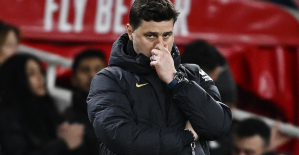It's so easy to get angry at Cardinal Woelki - whether it's the slow investigation of abuse, his authoritarian style of leadership or the lack of equality in the (entire Catholic) Church.
But sometimes the outrage about Woelki is also very careless. For example, with the Archbishop's recent plan to open a second university for priestly training in Cologne next to the Bonn location.
One would have thought that an apparent petitesse like this would lie under the public's radar. But far from it. For weeks, commentators from almost all media have been raging because the cardinal dares to set up a second training center. And in the state parliament of North Rhine-Westphalia, the Minister of Science Ina Brandes (CDU) Woelki even warned against having priests trained at the Cologne University of Catholic Theology (KHKT). This violates the legally binding concordat that the Catholic Church and the state of Prussia concluded in 1929. It stipulates that the diocese may only have priests trained at the University of Bonn. Indeed, some legal experts see it that way. Others, like Christian Hillgruber from Bonn, disagree. According to him, it would only violate the Concordat if, without exception, all the priests of the diocese studied in Cologne.
So it would have suited Brandes to formulate something a little less apodictically. But it was against Woelki. And it seems that hardly any member of the government refrains from putting his punch in the public eye. It is hardly the task of a secular state to warn against supposedly more conservative priestly training in Cologne. If the cardinal is actually concerned with setting more traditional accents in the training at the Cologne location, then his church people may fight against it - but not a state government committed to religious neutrality. Especially since the concern that the KHKT would not train priests in the historical-critical method is misguided. The papal church has been strictly committed to historical criticism of the Bible since the Second Vatican Council.
Above all, however, one could take Woelki's initiative as an opportunity to rethink the Concordat and the entire relationship between church and state. After all, this obviously leads to mutual impositions. The fact that a secular state dictates to the church whether it trains its priests in Bonn or in Cologne is encroaching. This overbearing attitude seems like an encroachment on constitutional freedom of religion and at the same time undermines the state's all-important duty of religious neutrality. Conversely, however, the state must also be able to decide freely which religious training centers it subsidizes and which it does not. It cannot be that the church alone decides how to use the money that the state gives it for university education for young people.
To put an end to all this, the federal and state governments should finally stop acting as patrons of the churches. This is bad for both sides. The federal and state governments allow themselves to interfere in the internal affairs of the churches because they largely finance theological training, at least at state universities. And because the two large churches receive around 550 to 590 million euros in “government benefits” from the state as a de facto gift – officially as compensation for the expropriation of church property under Napoleon (!) more than 200 years ago. This fatal dependence of the churches on the state must be ended.
Thankfully, the traffic light coalition wants to at least tackle the end of state benefits and let the flow of money run out - sweetened with a final farewell gift of around ten billion euros. Hopefully the coalition will not lose heart halfway. Because such a disentanglement would do both good - a self-determined church as well as a state that knows the limits of its jurisdiction.

 His body naturally produces alcohol, he is acquitted after a drunk driving conviction
His body naturally produces alcohol, he is acquitted after a drunk driving conviction Who is David Pecker, the first key witness in Donald Trump's trial?
Who is David Pecker, the first key witness in Donald Trump's trial? What does the law on the expulsion of migrants to Rwanda adopted by the British Parliament contain?
What does the law on the expulsion of migrants to Rwanda adopted by the British Parliament contain? The shadow of Chinese espionage hangs over Westminster
The shadow of Chinese espionage hangs over Westminster Colorectal cancer: what to watch out for in those under 50
Colorectal cancer: what to watch out for in those under 50 H5N1 virus: traces detected in pasteurized milk in the United States
H5N1 virus: traces detected in pasteurized milk in the United States What High Blood Pressure Does to Your Body (And Why It Should Be Treated)
What High Blood Pressure Does to Your Body (And Why It Should Be Treated) Vaccination in France has progressed in 2023, rejoices Public Health France
Vaccination in France has progressed in 2023, rejoices Public Health France The right deplores a “dismal agreement” on the end of careers at the SNCF
The right deplores a “dismal agreement” on the end of careers at the SNCF The United States pushes TikTok towards the exit
The United States pushes TikTok towards the exit Air traffic controllers strike: 75% of flights canceled at Orly on Thursday, 65% at Roissy and Marseille
Air traffic controllers strike: 75% of flights canceled at Orly on Thursday, 65% at Roissy and Marseille This is what your pay slip could look like tomorrow according to Bruno Le Maire
This is what your pay slip could look like tomorrow according to Bruno Le Maire Sky Dome 2123, Challengers, Back to Black... Films to watch or avoid this week
Sky Dome 2123, Challengers, Back to Black... Films to watch or avoid this week The standoff between the organizers of Vieilles Charrues and the elected officials of Carhaix threatens the festival
The standoff between the organizers of Vieilles Charrues and the elected officials of Carhaix threatens the festival Strasbourg inaugurates a year of celebrations and debates as World Book Capital
Strasbourg inaugurates a year of celebrations and debates as World Book Capital Kendji Girac is “out of the woods” after his gunshot wound to the chest
Kendji Girac is “out of the woods” after his gunshot wound to the chest Skoda Kodiaq 2024: a 'beast' plug-in hybrid SUV
Skoda Kodiaq 2024: a 'beast' plug-in hybrid SUV Tesla launches a new Model Y with 600 km of autonomy at a "more accessible price"
Tesla launches a new Model Y with 600 km of autonomy at a "more accessible price" The 10 best-selling cars in March 2024 in Spain: sales fall due to Easter
The 10 best-selling cars in March 2024 in Spain: sales fall due to Easter A private jet company buys more than 100 flying cars
A private jet company buys more than 100 flying cars This is how housing prices have changed in Spain in the last decade
This is how housing prices have changed in Spain in the last decade The home mortgage firm drops 10% in January and interest soars to 3.46%
The home mortgage firm drops 10% in January and interest soars to 3.46% The jewel of the Rocío de Nagüeles urbanization: a dream villa in Marbella
The jewel of the Rocío de Nagüeles urbanization: a dream villa in Marbella Rental prices grow by 7.3% in February: where does it go up and where does it go down?
Rental prices grow by 7.3% in February: where does it go up and where does it go down? Europeans: “All those who claim that we don’t need Europe are liars”, criticizes Bayrou
Europeans: “All those who claim that we don’t need Europe are liars”, criticizes Bayrou With the promise of a “real burst of authority”, Gabriel Attal provokes the ire of the opposition
With the promise of a “real burst of authority”, Gabriel Attal provokes the ire of the opposition Europeans: the schedule of debates to follow between now and June 9
Europeans: the schedule of debates to follow between now and June 9 Europeans: “In France, there is a left and there is a right,” assures Bellamy
Europeans: “In France, there is a left and there is a right,” assures Bellamy These French cities that will boycott the World Cup in Qatar
These French cities that will boycott the World Cup in Qatar NBA: the Wolves escape against the Suns, Indiana unfolds and the Clippers defeated
NBA: the Wolves escape against the Suns, Indiana unfolds and the Clippers defeated Real Madrid: what position will Mbappé play? The answer is known
Real Madrid: what position will Mbappé play? The answer is known Cycling: Quintana will appear at the Giro
Cycling: Quintana will appear at the Giro Premier League: “The team has given up”, notes Mauricio Pochettino after Arsenal’s card
Premier League: “The team has given up”, notes Mauricio Pochettino after Arsenal’s card


















